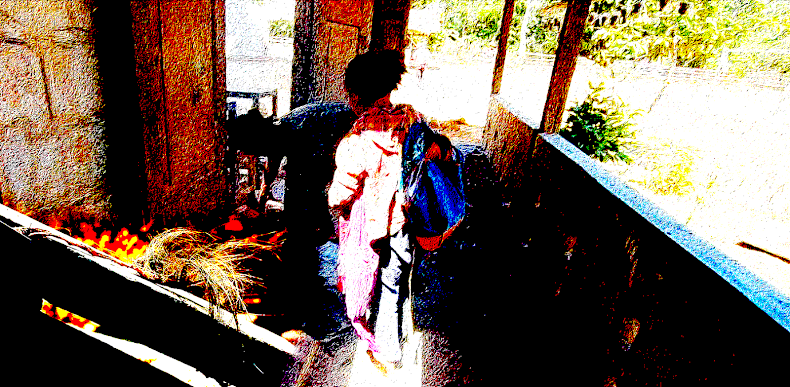Myanmar Spring Chronicle – February 5th by MoeMaKa Media:
School Bombing Claims Lives of 4 Children
Monday morning, February 5, marked a heart-wrenching incident as Dawsiei Village in Demoso Township, Karenni State (formerly Kayah State), witnessed the devastating bombing of a school. The village school, under the administration of local civil society organizations and the interim administration in an area liberated from the military council’s control, faced an unexpected tragedy around an hour after the school’s normal reopening. Military council aircraft targeted and bombed the school, resulting in casualties among the students present in the classroom. Reports indicate that the children who lost their lives suffered severe injuries, including the dismemberment of their heads and body parts, while over a dozen other students sustained injuries.
Regrettably, this is not the first time the military council has targeted educational institutions where children study. In Sagaing, Chin, and the Karenni regions, similar incidents have occurred repeatedly over the past 2 to 3 years. Some attacks, however, did not coincide with study hours, sparing students from harm. One egregious incident involved a prolonged helicopter attack on a school in Letyetkone Village in Depayin Township, resulting in the death of at least 5 students, 8 villagers, and injuries to approximately 27 individuals.
The tragedy at Dawsiei Village School now stands as the second-highest number of student casualties after the Letyetkone Village incident. These attacks on schools, hospitals, and religious structures, including monasteries and churches, reveal a disturbing pattern. The military council appears to view these places not only as shelters and communal spaces but also as potential hideouts for the local defense forces. Regardless of the actual presence of defense forces, the military council targets and attacks these locations without reconnaissance, exacerbating the severity and visibility of war crimes committed by the military council. The Myanmar military has a notorious history of committing war crimes, including the internationally condemned mass murders of the Rohingya people even before seizing power. Post-coup, these atrocities have continued, making such incidents sadly predictable. For the revolutionary forces, it serves as another grim reminder of the need to intensify their efforts against the military council.
Beyond this incident, aerial bombing attacks on Pazigyi Village in Kanbalu Township resulted in the loss of hundreds of civilian lives. An airstrike near Hpakant’s Anantpa Camp claimed at least 60 lives, including KIA soldiers and civilians attending a music concert. Additionally, shooting attacks near Laiza in Mone Lai Khyet Village caused numerous casualties due to airstrikes.
The escalation of airstrikes has become a grim reality since the beginning of 2022. In battles where ground forces of the military council faced difficulties, they increasingly relied on air support, leading to daily air attacks on various locations, villages, and structures. Such frequent and indiscriminate use of aerial attacks in a civil war is an unprecedented phenomenon globally.
The mass killing of civilians and the airstrikes resulting in the deaths of children mark some of the darkest events in Myanmar’s civil war, spanning more than seven decades. While the pursuit of justice and accountability for war crimes is imperative, the current situation underscores the urgent need to take every possible measure to prevent further civilian casualties.

